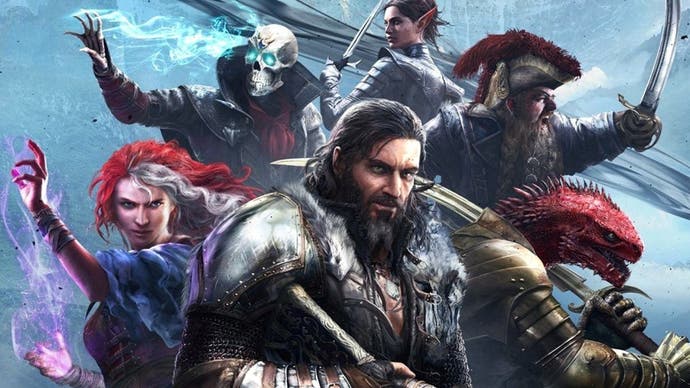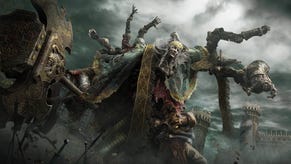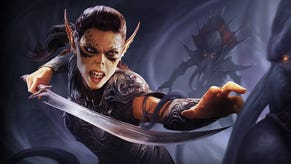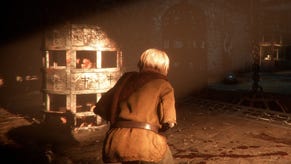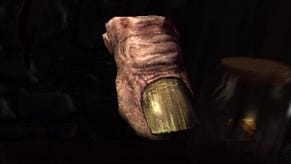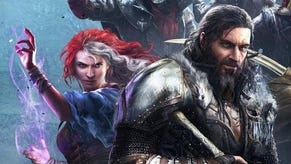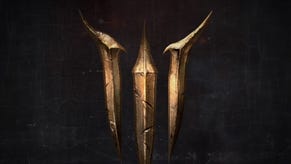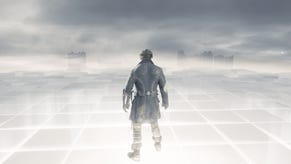What we've been playing
A few of the games that have us hooked at the moment.
1st of October, 2021
Hello! Welcome back to our regular feature where we write a little bit about some of the games we've found ourselves playing over the last few days. This time: Original Sin, a classic from the real old days, and something strange and wonderful.
If you fancy catching up on some of the older editions of What We've Been Playing, here's our archive.
Divinity: Original Sin 2, PC
Something that has struck me, returning to Divinity: Original Sin 2, is this idea of a tipping point in a game. To me, it's the moment you step across a difficulty threshold - let's assume it represents a fifty-fifty chance of success or failure - and move from struggling to succeeding. By doing so, you swap uncertainty for confidence in your outcomes.
The desire to get to this point is what, I believe, fuels an RPG - what fuels many games, maybe. It's a desire to take something weak and sloppy, like a ragtag band of starter adventurers, and make them strong and precise. To turn them into a well oiled fighting machine.
But the question I've been pondering recently is, 'Do I actually want that?' Because, I now believe, it fundamentally changes the game.
I hit this tipping point in early-game Divinity: Original Sin 2 recently (I've been steadily chipping away at it for a few weeks now). I went from being menaced by the powerful Fort Joy Magisters, to being able to defeat them. The moment I realised I could do this, I was thrilled. I was so excited I killed them all. Suddenly, I was in charge.
What bothered me afterwards, though, standing in an eerily quiet Fort Joy, was a feeling I had passed my challenge threshold for good. A feeling I would forever be one step ahead of what the game would throw at me. It was almost imperceptible, but it seemed to bear out, and steadily, my interest in the game began to wane.
I've felt this before. I felt it keenly in the Elder Scrolls games, I felt it keenly in Empire of Sin last year. That moment where you tip the balance and effectively beat the game, and then what happens next, really, is a formality.
I'm not saying there are no challenges left in Divinity: Original Sin 2, and I know I can simply turn up the difficulty to produce a new threshold to step over. But it's curious, isn't it? Have you felt it too?
Bertie
Zool Redimensioned, PC
Off the back of the A500 mini and Zool Redimensioned on Steam, there has been some discussion about whether Zool was actually any good or not - and I'd say it really depends on whether you have a penchant for Amiga platformers. Maybe it's nostalgia, but I personally love them - an era where floaty jumping, beautiful parallax backgrounds and needlessly sprawling levels were the norm; a sort of sub-genre where Robocod, Fire & Ice and Superfrog all felt like they were cut from the same rough, charming cloth.
But even I realise Zool perhaps suffers more than most due to its speed - it was billed as a Sonic competitor at the time - seeing you dash into tiny hazards with alarming regularity. Thankfully, the Steam remaster does a great job of sanding off the rough edges - zooming out the perspective to better suit modern displays, introducing better checkpointing and adding a double jump to help you scale its candy- and stereo-covered platforms - meaning it's finally possible to complete and appreciate how weird Zool gets in a single sitting.
I'd recommend it if you too have a fondness for the Amiga, £8 and a couple of hours to spare, and credit goes to Sumo Games Academy - an initiative to help new developers break into the industry - for successfully modernising a game while keeping its essence intact. I hope Zool Redimensioned is successful enough that more of Gremlin's back catalogue can be faithfully revived. How about Bounder? Loaded? And if Zool can work today without Chupa Chups, why not Lotus Turbo Challenge?
Matt Reynolds
Deltarune Chapter 2, PC, Mac
I'm not a fan of surprises, but finding the Deltarune Chapter 2 countdown on Twitter two weeks ago was definitely a welcome one. It's been nearly three years since the release of Chapter 1 and, as I downloaded the game, I wondered what Toby Fox had in store for me this time.
Turns out Deltarune Chapter 2 is an utter, crazy, delight. From the random explosions to the Queen's, this chapter's antagonist of a kind, hilarious dialogue, Deltarune captures what made Undertale great, while also proving itself to be unique. The soundtrack is also brilliant - my personal favourites being Big Shot and My Castle Town.
Best of all, however, the combat system is more refined compared to Chapter 1. The bullet hell segments continue to meld well with the turn based combat, but, now, gathering Tension Points for spells by grazing bullets feels more natural. This encouraged me to play a little more dangerously - edging closer to attacks I might have previously avoided. The monsters you encounter also have a more surreal style. My favourite is Poppus who is, as you can probably guess, the living embodiment of a pop-up ad and, just like the real thing, selecting the 'Click' act will only summon more!
When placed together the two chapters feel like they form the beginning of a fairy tale, with a horror story hidden within its heart. You see, there is something lurking beneath the cheerful aesthetic of Hometown and the Dark World's quirky tone. It hasn't taken full form yet, choosing instead to linger in a set of red doors, tidbits of information appearing where they shouldn't and a particular character who seems to, at times, look and talk directly to the player.
It's a sinister sensation which grows even closer if you decide to wander down the hidden Weird, or Snowgrave, route. When exploring this route I found my perspective of Deltarune's mechanics, and their implications, twisting further. It left me feeling both intrigued and worried about how future chapters will proceed.
Lottie Lynn
